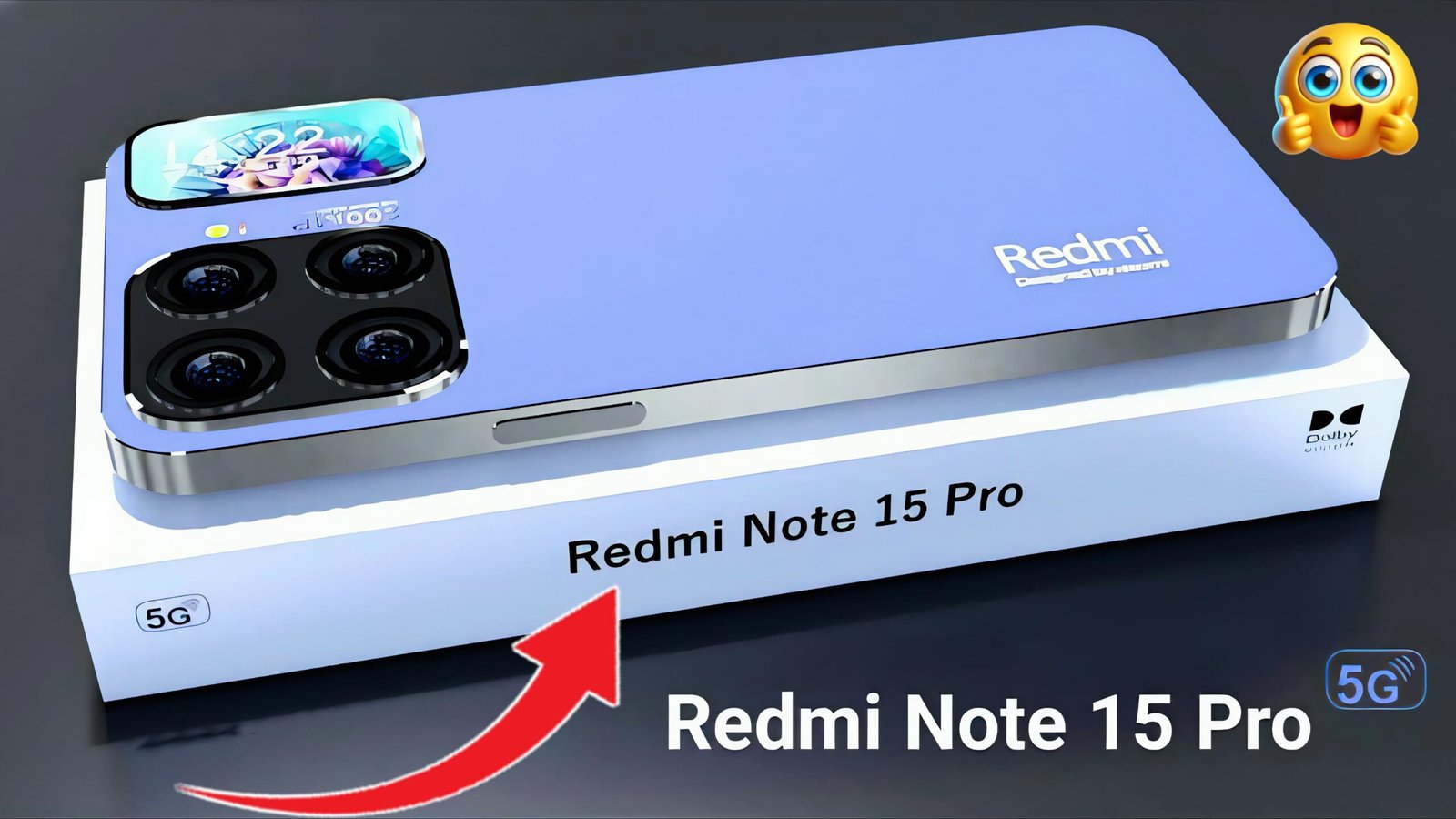The smartphone market in 2025 is witnessing fierce competition, and Redmi is making bold moves with its latest launch — the Redmi Note 15 Pro Max. This much-awaited device has created waves among tech enthusiasts and mid-range flagship seekers alike. Packed with powerful features like a massive 8,300mAh battery, a 300MP DSLR-level camera, and up to 24GB RAM with 2TB storage, this smartphone is designed to challenge premium devices while staying within a competitive price bracket. Redmi has always been known for offering feature-rich smartphones at aggressive prices, but with the Note 15 Pro Max, they’ve raised the bar to new heights. Let’s dive deeper into what makes this phone a potential game-changer in the 2025 smartphone lineup.
Massive Battery & Power Efficiency
- 8,300 mAh Battery: One of the largest capacities seen in a Redmi series device, promising up to two days of intensive use and long gaming or media sessions .
- Fast Charging Support: Although the exact wattage isn’t confirmed, Redmi typically incorporates fast charging in “Pro Max” offerings—expect around 67–90 W for topping up such a massive battery with speed and efficiency.
Memory & Storage: Going Above and Beyond
- Up to 24 GB RAM: A spec rarely found outside flagship-tier devices—ideal for consumers who multitask heavily, game, or stream extensively.
- Up to 2 TB Storage: An unprecedented storage offering for smartphones; perfect for creators, gamers, or users who archive lots of video/photos locally .
Camera Excellence: 300 MP Sensor
- 300 MP Main Sensor: Claims of “DSLR‑quality” imagery signal Redmi’s ambition to push computational photography and sensor design to the next level .
- While secondary cameras weren’t detailed in the source, Redmi Pro Max models typically include wide-angle and telephoto modules—expect at least a dual- or triple-camera setup for versatility.
Performance & Display
- Though official chipset details haven’t been confirmed, leaks indicate Snapdragon 8 Gen 3-level performance—or perhaps even newer. Expect seamless gaming and high-performance multitasking .
- Display: Redmi generally equips Pro Max models with AMOLED screens featuring 120 Hz or higher refresh rates, HDR10+ support, and punch-hole or centered selfie cutouts.
Expected Price & Market Positioning
- Rumored to start at approximately ₹28,999 (for 8 GB + 256 GB)—a highly aggressive price point given the specs sheet.
- This positions the phone as a formidable challenger to competitors in the ₹30–40k segment, offering hardware specs usually reserved for ₹50k+ devices.
Why It Matters in 2025
- Flagship-Level Features at Half the Price
The combination of top-tier RAM, storage, and battery could disrupt pricing strategies of premium devices. - XL Overspec Trend
As Android OEMs push limits on battery size and megapixel count, Redmi’s bold move aligns with user demands for longevity and photo quality. - Creator & Gamer Focus
The spec sheet virtually screams “content creation” and “gaming”—big screens, fast performance, and massive storage mean less compromise.
Potential Drawbacks
- Device Weight: A beefy battery and large sensors can add heft—2025 users expect thin, lightweight designs.
- Thermal Throttling: High-performance chipsets paired with large batteries could face heat dissipation challenges.
- Software Optimization: Raw specs are only half the story; MIUI’s refinement and camera software will determine real-world performance and experience.
How It Compares to Other Redmi Phones
Compared to its predecessors in the Redmi Note family—including the Note 14 Pro Max—these upgrades are monumental:
| Feature | Redmi Note 14 Pro Max | Redmi Note 15 Pro Max (2025) |
| Battery | ~6,000 mAh | 8,300 mAh |
| RAM | Up to 12 GB | Up to 24 GB |
| Storage | 256 GB max | 2 TB possible |
| Camera | 108 MP main sensor | Up to 300 MP |
| Processor | Snapdragon 8 Gen 1 | Likely Snapdragon 8 Gen 3+ |
Final Thoughts
The Redmi Note 15 Pro Max stands to become one of 2025’s most talked-about mid-range phones. With an unmatched battery, sensational RAM and storage options, and groundbreaking camera hardware, it offers features that rival full-fledged flagships—at a fraction of the cost. Success will hinge on final performance metrics, MIUI optimization, and real-world usability, but the foundation is undeniably formidable.
